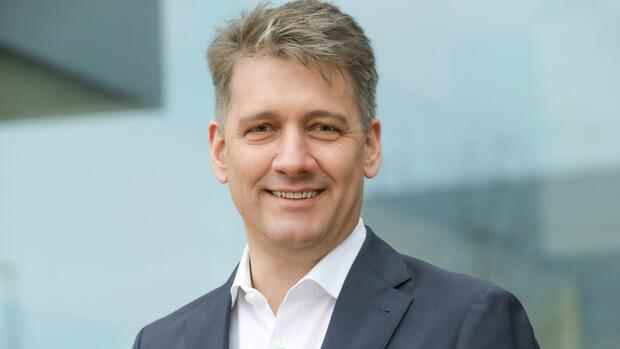The 52-year-old chief strategist is driving the change to an electrical supplier at Volkswagen.
(Photo: Volkswagen AG)
Wolfsburg The Volkswagen group administration in Wolfsburg, 13th floor: Gernot Döllner comes out of his office and wants to see the CEO. The 52-year-old doesn’t have far, CEO Herbert Diess resides right across the street.
Döllner is the top group strategist at Volkswagen, who reports directly to Diess. In the spring, Döllner took up the post in Wolfsburg. The strategy is one of the CEO’s most important fields of action, which is why the paths to the top strategist should be as short as possible.
In the very first stage, Gernot Döllner is preparing what will become reality at Volkswagen in a few years’ time: which cars will be available from dealers in the future and where these new vehicles will then be produced. The first point is of particular interest to customers. The company’s own workforce, on the other hand, wants to know in which factories new models will roll off the production lines in the future. Because that secures employment and pay.
Döllner does not want to comment on the conflict of the past few months with the Wolfsburg works council over a possible far-reaching job cuts of up to 30,000 jobs. He leaves this field to his superiors, above all CEO Diess.
Top jobs of the day
Find the best jobs now and
be notified by email.
As the chief strategist of a car company, Döllner has to look far into the future. Periods of up to ten years are completely normal. Döllner is already thinking about which vehicles could be on the roads at the beginning of the next decade.
The development cycles in the automotive industry are long. It takes around five years for the first sketch to turn into a production vehicle that actually rolls off the production line.
The long planning runs are partly responsible for the fact that Gernot Döllner’s mentality is somewhere in the 1930s. New machines have to be ordered. Pressing tools are needed that can be used to manufacture body parts such as fenders and door panels in the future.
Strategic planning has gotten more complicated
With the “Trinity” project, Volkswagen wants to set industry standards in Wolfsburg by the end of the decade. In the future, an electric car is to be produced in a completely new factory in ten hours. Today 30 hours are still common. Döllner is also involved in this planning.
The strategic planning of a car company like Volkswagen has also become a bit more complicated. Because with the switch to electromobility, Gernot Döllner has to work out plans for the drive system with which future models will be on the road. There is also a time of transition: Diesel or gasoline engines will not go away anytime soon within a few years.
Gernot Döllner is irrevocably certain that the combustion engine is slowly coming to an end. “For me, the future of the car is electric,” he says in an interview with the Handelsblatt. Electric cars are technologically superior to any other type of drive in terms of drivability and acceleration.
Döllner maintains a personal commitment to the electric car, which is based on his own experience. The engineer moved to Wolfsburg in May; before that, he worked for more than two decades in various positions as a product strategist at Porsche.
In the beginning he commuted between the VW headquarters and his home in Swabia – with an electric Porsche Taycan. It has now become an ID.3 from Volkswagen: Döllner has brought his family to Lower Saxony. For the daily commute to work, the more modest e-model from VW is now sufficient.
Döllner does not want to decide how long the combustion engine will still be around. The regional framework conditions and requirements of individual states are too different. In the end, the type of power generation will also determine the fate of the combustion engine. “The transformation should be based on the electricity mix,” emphasizes Döllner. The electric car will only be really clean and emission-free if only electricity from renewable forms of energy is actually used.
Döllner has no doubts about the electrical strategy
Döllner is currently working on product planning for the years 2025 to 2030. In detail, it is determined in which year which car should come on the market. These will be second-generation electric vehicles that the development engineers are currently working on. For example, they should charge better and faster than the e-cars that VW has been selling for a good year.
Gernot Döllner believes in the success of the electrical strategy, there are no longer any doubts for him. This year the EU increased the specified electrical quotas again. By 2030, car manufacturers in Germany will need an electrical share of around 80 percent. Because the group can produce these cars, Döllner has remained calm despite the tightening from Brussels: “Europe is lagging behind what Volkswagen has presented. That is a confirmation of our strategy. “
Döllner then only has to hope that there will be no new conflicts with his own works council in the new year. Conflicts that paralyze the group and that would hinder the implementation of the strategy.
More: “This is a whole new way of producing cars” – Brandstätter, Brand Manager, on the VW investment plan
